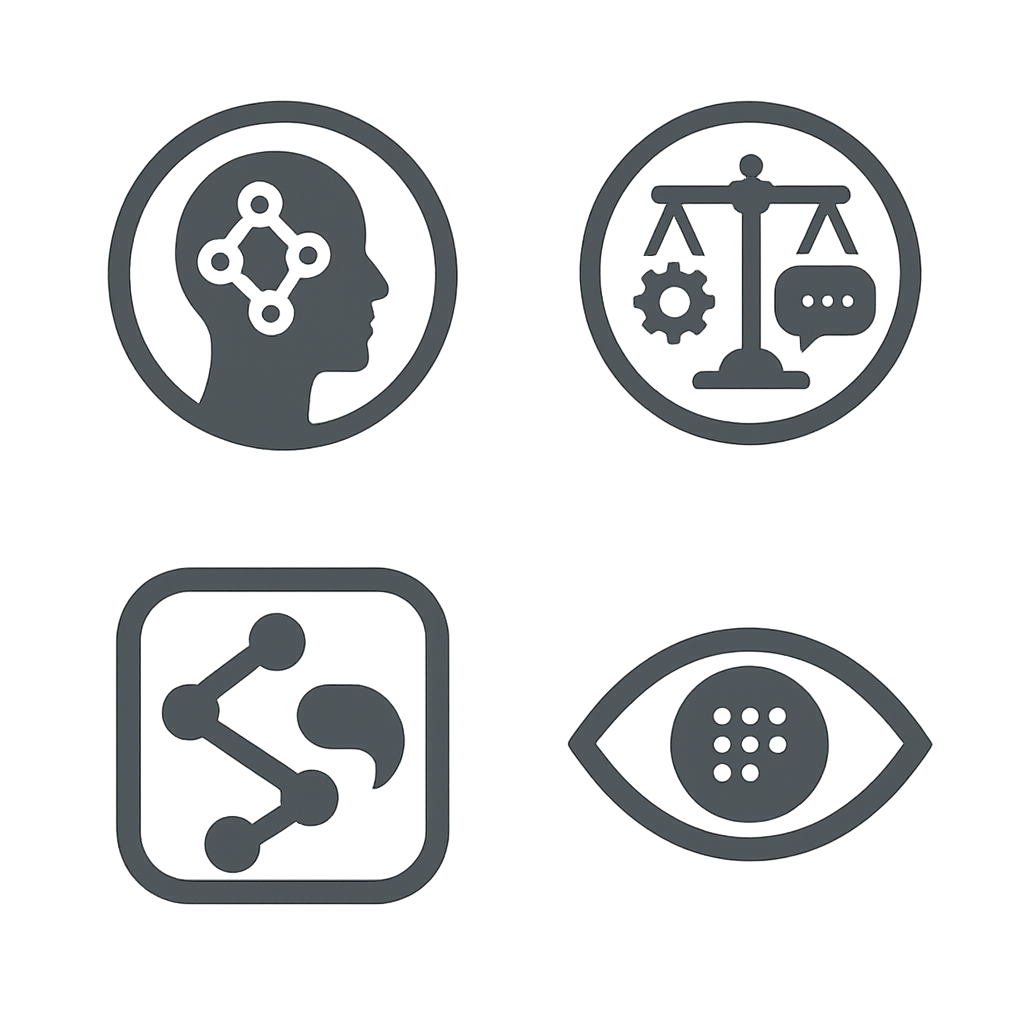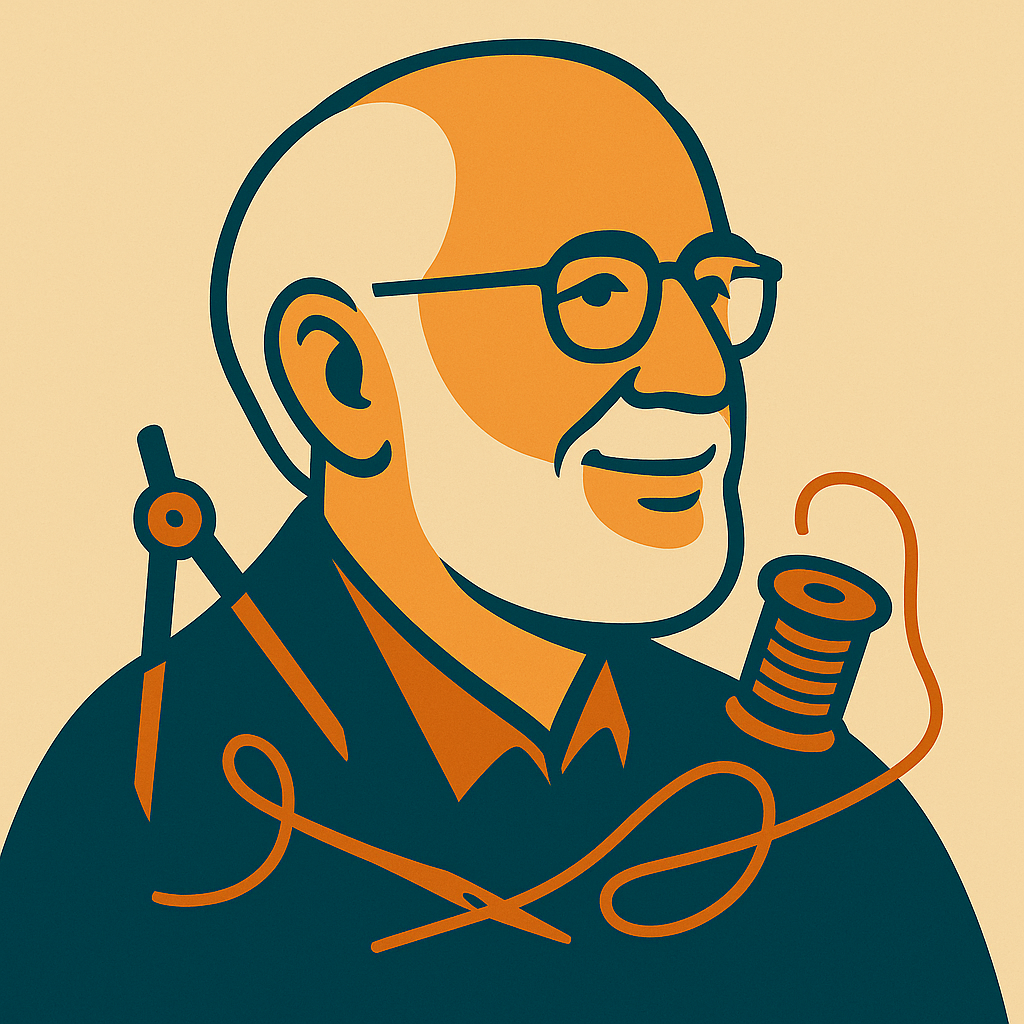Teaser
I read AI with Richard Sennett as a running tension between craft and frictionless UX: convenience can deskill workers and privatize civic competence, yet tools can also deepen skill, cooperation, and care. The question is whether we design AI to cultivate craft and character—or to erode them in the name of speed. (Sennett 2008; 1998).
Why Sennett—why now?
Sennett’s work links the dignity of making to the ethics of living together: craftsmanship as a human impulse to do a job well; cooperation as a learned practice; and the new capitalism’s habit of unmooring people from long-term narratives. Those threads meet AI in today’s workplaces, classrooms, and cities.
Six Sennett lenses for AI
1) Craft vs. convenience. “Frictionless” design removes handles where skill lives—choices, tests of judgment, moments of repair. A Sennettian AI preserves the grain of the task so people can learn by wrestling with it. (Sennett 2008).
2) Cooperation as a craft. Collaboration isn’t just goodwill; it takes practiced listening, turn-taking, and dealing with disagreement. AI that coordinates work should train and reward those micro-skills instead of hiding them behind automation. (Sennett 2012).
3) Character and time. Flexible, short-horizon regimes corrode narratives of purpose; dashboards can accelerate that corrosion. Counter-designs build long arcs into work—apprenticeship, mastery tracks, and reflective time. (Sennett 1998).
4) Public competence. Cities flourish when people practice complexity in public—navigating strangers, ambiguity, and open-ended problems. AI for urban life should widen those capacities rather than privatizing them into personal convenience. (Sennett 2018).
5) Hidden injuries of class. Seemingly neutral metrics can humiliate by coding background and language as “lack of fit.” Build systems that recognize diverse routes to skill and restore standing when outputs do harm. (Sennett & Cobb 1972/2023).
6) The culture of the new capitalism. If institutions chase agility at all costs, AI becomes a relay for churn—perpetual reorg by algorithm. Sennett’s antidote is institutional patience: stable practices where people can commit and grow. (Sennett 2006).
Three applications
Office & creative AI. Treat copilots as apprenticeships in miniature: expose drafts, reveal trade-offs, and make revision a first-class act. Reward improvement over pure throughput to protect vocation. (Sennett 2008; 1998).
Service & logistics. Route-optimizing and quality dashboards should surface craft knowledge (local fixes, safety calls) and allow workers to annotate and override—so cooperation beats silent compliance. (Sennett 2012).
Civic platforms. Build “open city” features: slower lanes for deliberation, visible disagreements, and public-making rituals (acknowledgments, reasons-giving, restorative repair) instead of pure engagement loops. (Sennett 2018; 1970/2021 reissue).
Toolkit for students
- Skill trace: Record one task with and without AI; list which moves the tool hides, supports, or teaches.
- Cooperation diary: Code a week of team interactions for practices Sennett values (listening, turn-taking, disagreement-handling); propose one interface change that trains them.
- Time audit: Compare short-horizon KPIs to long-horizon learning goals; design a metric that honors mastery.
- Civic drill: Prototype an “open city” affordance (public reasons, counter-proposal button, rotating citizen jury).
- Standing check: Identify where outputs wound dignity (tone, ranking, rejection reasons) and sketch a remedy and restitution path.
Design & policy takeaways
- Make repair visible. One-click “show me the fix” and “teach me why” instead of black-box outputs.
- Cooperation UX. Interfaces that practice turn-taking and conflict—not just handoff.
- Apprenticeship modes. Shadowing, critique cycles, and mastery tracks baked into product goals.
- Open-city defaults. Public reasons, reversible choices, and space for ambiguity in civic tech.
- Dignity safeguards. Disclose criteria, allow narrative evidence, and provide tangible remedies for misclassification.
Literature (APA, with links)
Sennett, R. (2008). The Craftsman. Yale University Press. Publisher page.
Sennett, R. (2012). Together: The Rituals, Pleasures, and Politics of Cooperation. Yale University Press. Publisher page.
Sennett, R. (1998). The Corrosion of Character: The Personal Consequences of Work in the New Capitalism. W. W. Norton. Publisher page.
Sennett, R. (2018). Building and Dwelling: Ethics for the City. Penguin. Publisher page.
Sennett, R. (2006). The Culture of the New Capitalism. Yale University Press. Publisher page.
Sennett, R., & Cobb, J. (1972/2023). The Hidden Injuries of Class. Verso. Publisher page.


Leave a Reply to Series Introduction: “What Would s*he say about AI & Society?” – Sociology of AI Cancel reply